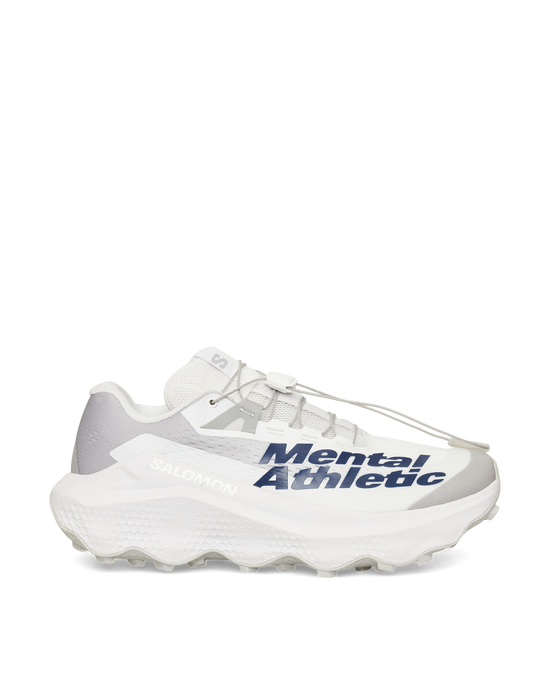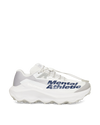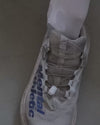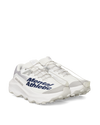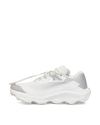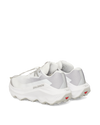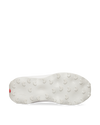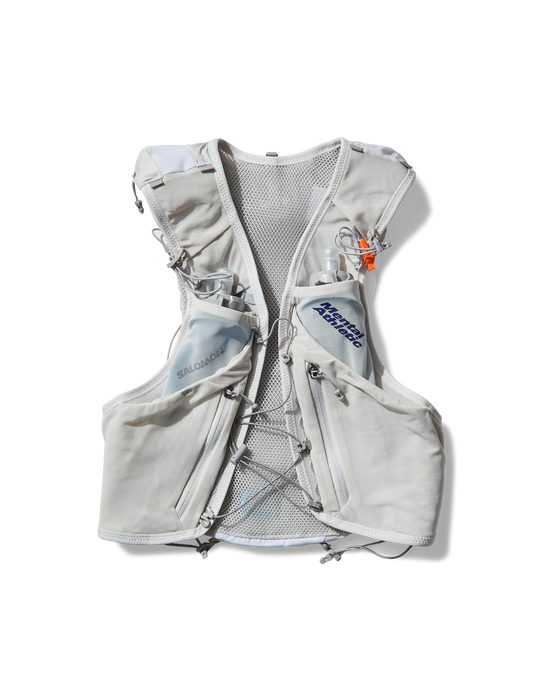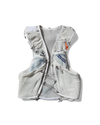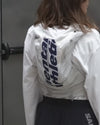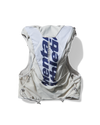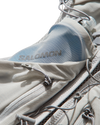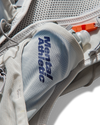Deep Emotional Energy
OEM IN CONVERSATION WITH MICHELE FOSSI
ON THE ROOTS OF THE PROJECT AND THE NEW CONCEPT OF WELLBEING
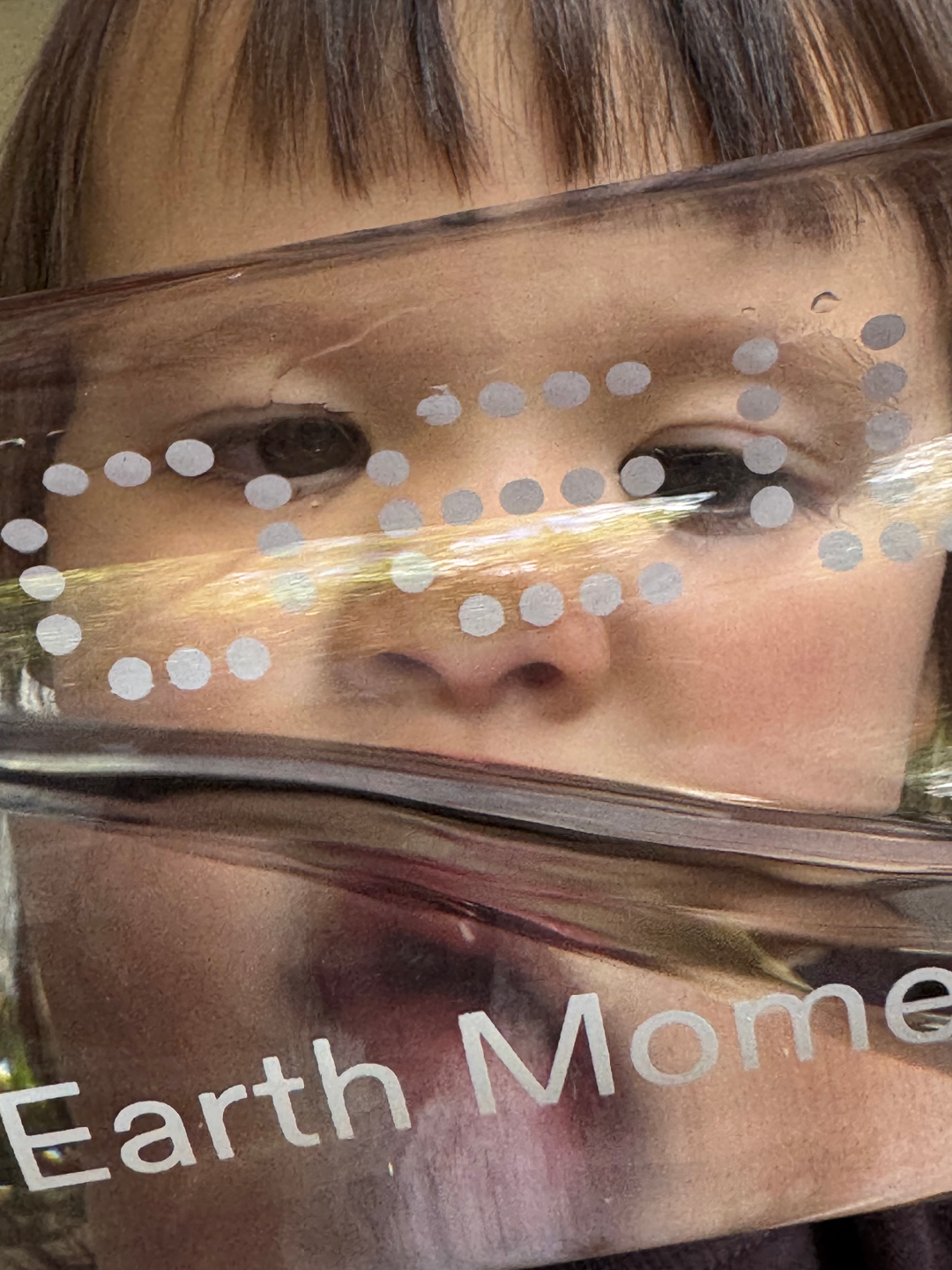
OEM is a California-based company specializing in home and healthcare products that seamlessly integrate physical wellness with mental and emotional well-being. At the core of their philosophy lies a commitment to holistic care—approaching health not as isolated symptoms to be treated but as an interconnected journey of the mind, body, and environment. This vision is reflected in every aspect of their offerings, from their thoughtfully crafted products to their minimalist yet spiritually inspired packaging.
Founded by Canadian-Japanese couple Ceilidh MacLeod and Shun Kinoshita, OEM (short for “On Earth Momentarily”) draws on diverse cultural philosophies, including the Japanese concept of kikubari—a quiet, intuitive care for others—and a deep appreciation for interconnectedness. Their innovative approach combines high-tech precision with new-age aesthetics, creating items that are as functional as they are emotionally resonant.
In this interview, co-founder Shun shares the story behind the brand, its unique design philosophy, and the challenges and inspirations that have shaped OEM into a company redefining modern wellness.
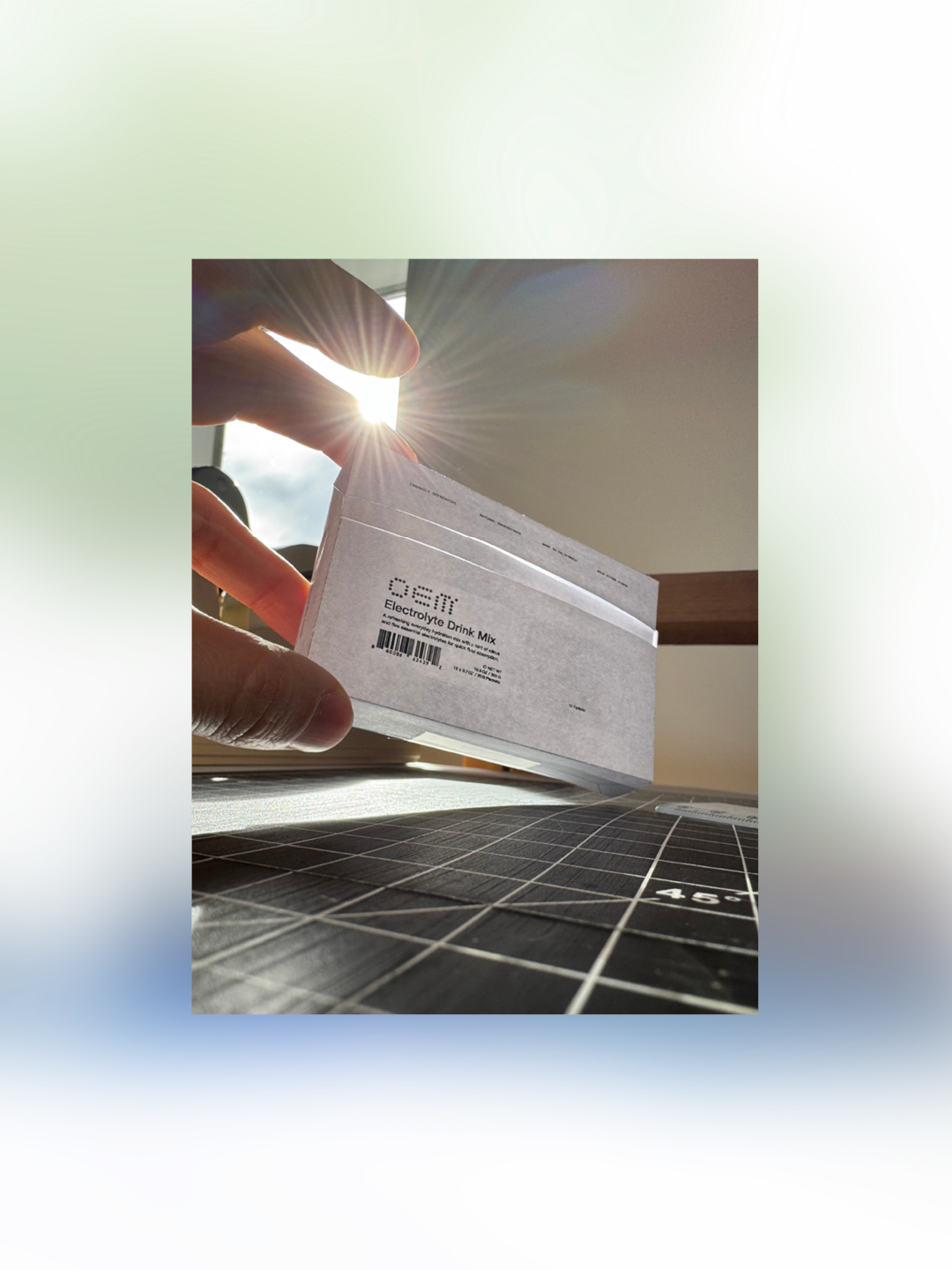
Michele Fossi: How did OEM come into being?
Shun Kinoshita: Back in 2016, when we were moving to Los Angeles, I was going through a personal health crisis. I was diagnosed with multiple sclerosis (MS), a condition that attacks the nervous system, causing symptoms like loss of mobility, vision, and control over your body. It was the lowest point in my life… it was like, “Oh you have MS, you can do chemotherapy and here are some meds.” I scoured the internet for answers and found more comfort in online forums than in the hospital.
The journey through the healthcare system was eye-opening. It made me realize that healthcare often focuses on treating symptoms rather than addressing the root causes. More often you know your body better than anyone. So, after days of doomscrolling and self-analysis, I found out that what I was putting into my body was causing more harm than good. I identified my allergies and changed my diet, my symptoms began to improve, and even the doctors were left puzzled—some wondered if I still had MS at all. The unknowns around MS are vast, but for me, this shift in lifestyle made all the difference.
This experience fundamentally reshaped how I think about healthcare. When we’re sick, we don’t just need a prescription—we need to feel cared for. True care isn’t just about medicating, it’s about understanding the whole picture of health. That’s why we believe in a 360° approach to wellness. It’s not just about fixing one thing—it’s about integrating every aspect of your well-being to create something that works for you.
MF: What role do OEM’s products play in supporting active lifestyles, particularly for runners?
SK: Our entry into the world of running was a natural progression for us—at OEM, our mission has always been to create “A New Drugstore,” offering tools that support overall health, which includes tools for exercise. Physical activity is fundamental to your well-being and our drink is a great tool to help replenish fluids but also encourage exercise, so it got adopted across the board by the communities of runners, cyclists, climbers, and other sports categories, but principally in running. Running has a low barrier to entry and as we’re trying to encourage people to be healthy and move their body, it just felt like a natural path for us.
With our new electrolyte powder mix, we’ve developed a product that’s designed for first thing in the morning, before, during, and after runs, when you're feeling hungover, or even before sleep. We think of it as enhanced water—it’s subtle and insanely refreshing. It feels like you’re drinking something from the future. We’re excited to put this out into the world.
MF: Let’s take a look at the holistic approach OEM is famous for. What are the core principles of your philosophy?
Ceilidh MacLeod: We thought a lot about our interconnectedness with the universe, like the Powers of Ten films—you start by zooming in on yourself—what can I do to feel healthy, happy, centered? Then you start looking outward—what’s my community doing to affect me, and how am I affecting them? And then you zoom out even further—what about my environment? How’s all of that shaping my health, my well-being?
That’s how we try to think about our products and our brand. It’s not just about the individual—it’s about how we can make an impact at the community level, and beyond that, in the spaces we live in. It’s all connected, you know? So, the question becomes: how do we contribute to all those layers meaningfully?
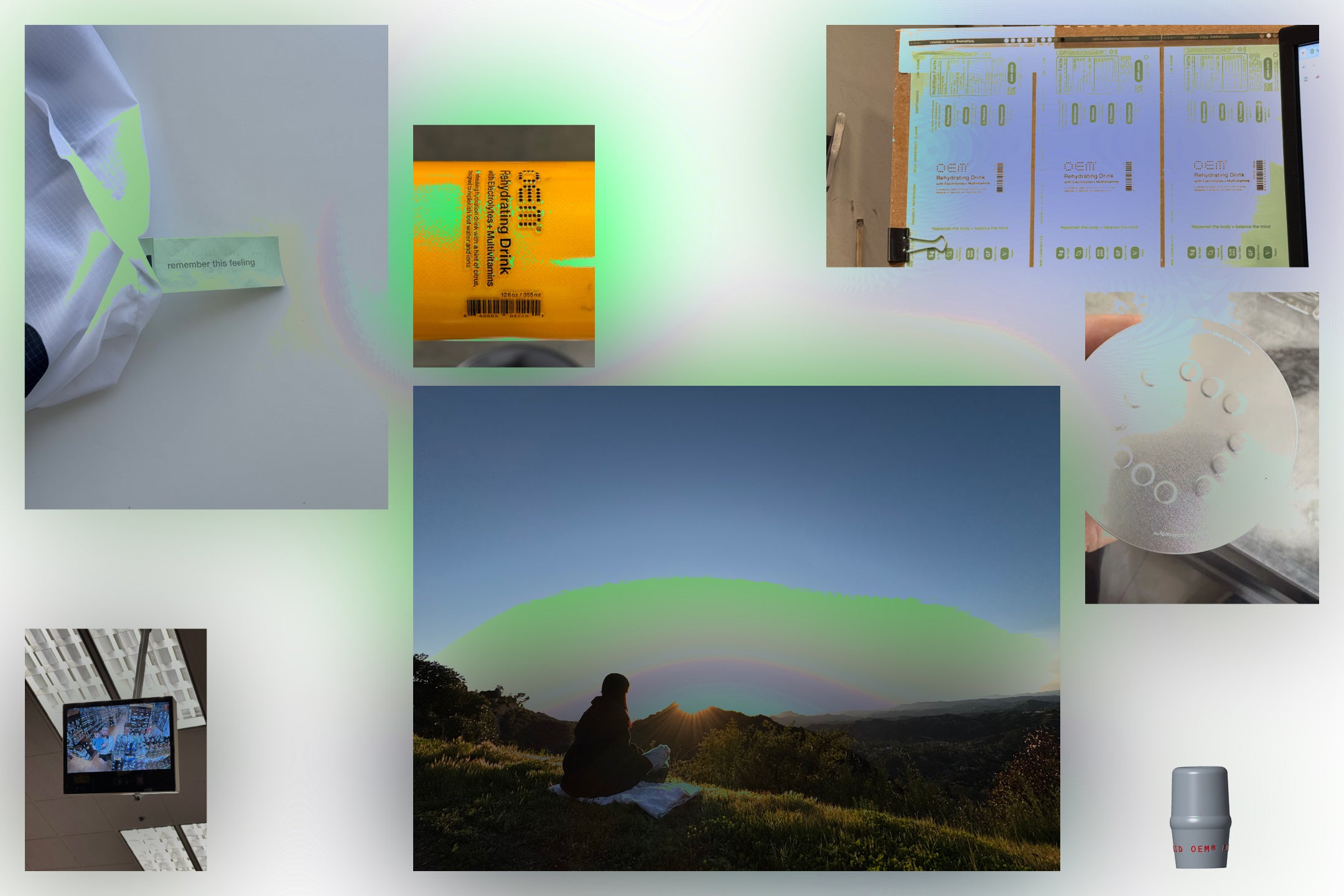
MF: Do you feel that combining physical wellness with mental or spiritual health is a rising trend in contemporary society, and do you think it’s a trend that will last?
CM: Blending physical wellness with mental or spiritual health isn’t a new idea—it’s been around forever, from tai chi and yoga, to running. Every generation finds its own way of doing it. What’s interesting is figuring out which of those approaches are authentic and which are just marketing dressed up as something deeper.
That’s why we don’t lean on buzzwords to sell what we create. It’s not the fastest path, but it’s real. And in the long run, it builds trust with people. The thing is you can’t separate physical health from mental health—they’re completely connected. One doesn’t work without the other, and once you get that, it changes how you think about everything you do.
MF: Your company is known for its sleek, high-tech designs paired with soothing, spiritual, and occasionally new-age elements—an uncommon approach in the realm of products for runners. How and why did you decide on this aesthetic?
SK: We wanted to blend a sense of medical reliability with a design aesthetic that conveys trust, drawing inspiration from minimalist yet intuitive and approachable brands like MUJI and Apple. At the same time, we wanted to infuse this with more spirit.
When it comes to running, it’s about creating something that works. It has to be technical and precise, but it also needs to evoke some deeper emotion that will inspire and enable you to push yourself. And then there’s this other layer—understanding energy. There’s the high-intensity energy you tap into when you run, but there’s also this energy you can generate when you’re still, meditating.
CM: Running, for the most part, used to be all about sweating it out, competition, who’s the fastest… but now it has evolved to become more of a meditative or therapeutic practice for many. What we’re doing is blurring the lines—bringing that spiritual mindset into the adrenaline rush. It’s all about energy. When you focus in that way, it’s like unlocking a whole new level of output. It’s not just running anymore; it’s something much more.
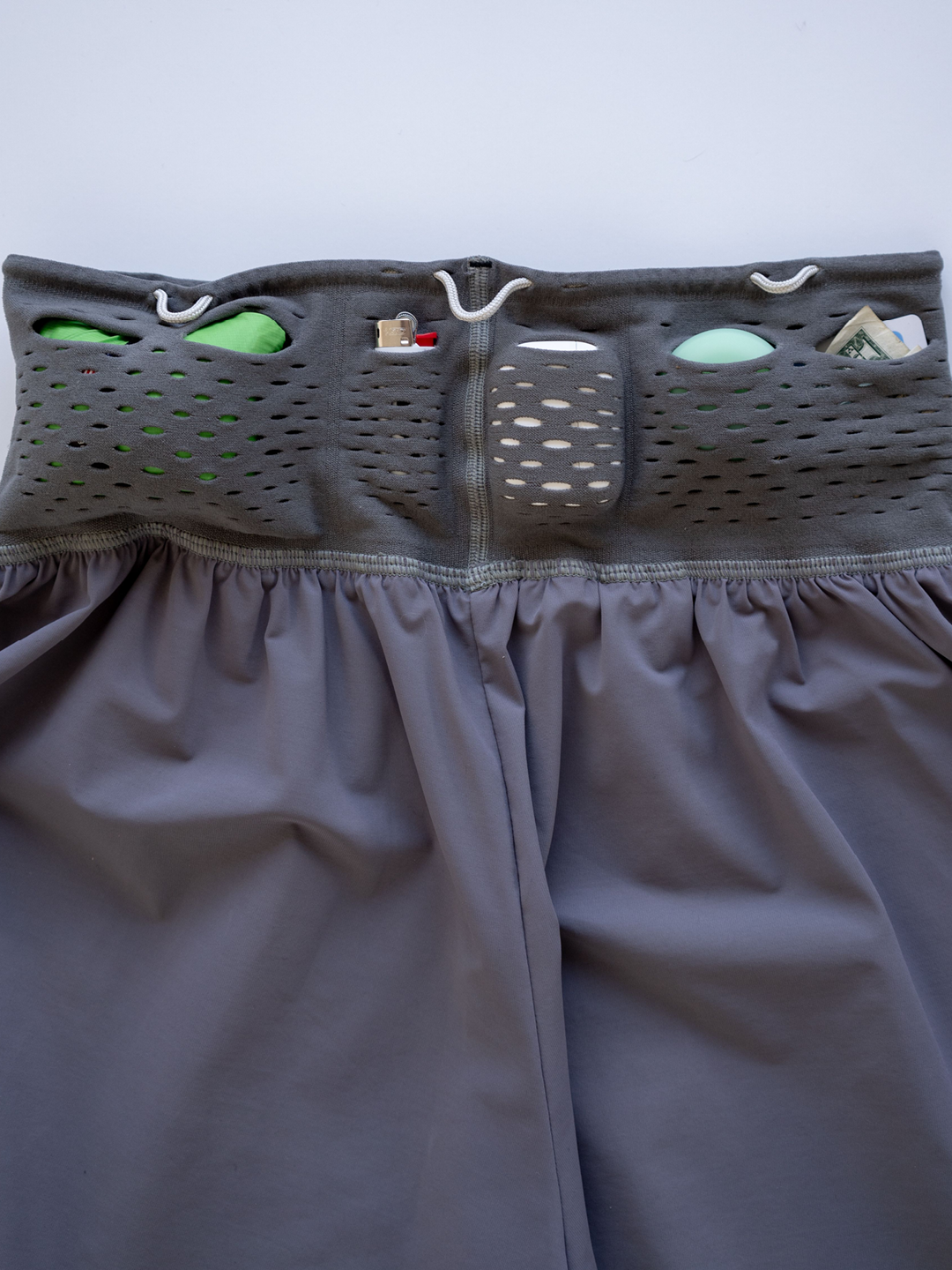
MF: The COVID-19 pandemic heightened awareness of the home as a sanctuary, with people now viewing their homes as spaces for healing, creativity, and connection rather than just utilitarian living spaces. Would it be fair to say that the pandemic has provided your company with a whole new raison d’être, a renewed sense of purpose?
SK: I don’t think COVID really changed much for us, honestly. Our homes have always mattered—they mattered before COVID, and they’ll matter long after. Wherever you spend your time—whether it’s your home, your workplace, your commute—that’s all part of your health journey. That’s always been clear to us.
The idea of OEM was in motion before COVID was even on the radar. It was always going to involve experience and your environment. COVID didn’t spark that; it just maybe highlighted something we already knew was important. In fact, the original inspiration and tagline for OEM was, and still is, “The New Drugstore.” We just hated the experience of walking into a CVS or Walgreens—the harsh lighting, the carpeted floors, the overwhelming choices. It felt all wrong, especially when you’re already not feeling your best. Those first touchpoints of care should feel calming and thoughtful.
Your home is no different. It’s the place where you heal, rest, and care for yourself. That’s what we were thinking about from the start.
MF: What challenges do you face in merging high-tech innovation with spiritual and aesthetic values?
CM: There are definitely some marketing challenges in the way we approach this. When you position your brand based on spirituality or a bigger, aesthetically oriented picture, you end up sacrificing a lot of the usual marketing playbook. We post things without products, use more long-form writing, minimal packaging—stuff that asks for a little investment from the customer. It’s not the kind of thing you scroll past and “get” in two seconds on Instagram.
But we believe in it. Because when someone does take that moment to engage, they really get it—and they stick with us.
There’s this YouTube video we’re obsessed with called “Timelapse of the Future.” It’s this incredible journey, speeding through the future evolution of the Earth and the universe. The first time we watched it, we were like, “This is OEM.” That feeling—that sense of awe, of realizing we’re here for this brief, miraculous moment—that’s exactly what we want people to feel when they encounter our brand.
That’s where the name comes from: On Earth Momentarily. If you ever saw our first website, it literally gave you an option to “enter” or “leave.” And if you chose to leave, it would redirect you to that video. It wasn’t about converting everyone right away. It was more like, “If you don’t get it now, maybe this will help you understand where we’re coming from.” For us, it wasn’t about optimizing for clicks or conversions. It was about creating something bigger—something that made people pause and think about what really matters. And hopefully something that inspires people to care for others. We just make the tools for care.
MF: Have any specific traditions, philosophies, or movements inspired your company’s vision?
CM: Kikubari is this beautiful concept from Japan—it’s essentially a deep, intuitive care for others. It’s not just about being polite or considerate; it’s about anticipating needs without being asked. It’s this quiet, thoughtful way of being there for someone, whether it’s noticing they’re cold and handing them a blanket, or just leaving space for them to speak when they need it.
To me, it’s such a powerful idea because it’s not performative. It’s not about getting credit or recognition—it’s just about being deeply in tune with the people around you.
And honestly, it’s a philosophy we try to embody in our work. Whether it’s a product, a space, or an interaction, the goal is to design something that feels like it understands you before you even realize what you need. That’s the magic of kikubari. It’s about creating something that feels like it’s truly there for you, quietly.
MF: You’ve said, “We are inspired by moments of care. We honor those who put the needs of others before their own.” Can you elaborate on how this philosophy shapes your brand and its products?
SK: You know, instead of just focusing on self-care products, we wanted to create something deeper—products inspired by the care we show each other. Think about the little moments between family or loved ones, those real, human connections. That’s what we’re drawing from.
It’s not about the object or the product itself; it’s about the feeling. And honestly, that feeling of care is so often missing in what we think of as healthcare today. It’s all so sterile, so disconnected. We’re trying to bring that feeling back.
So, we’re infusing care into everything—into the product design, the experience, the packaging, every single touchpoint. It’s not just about what the product does; it’s about how it makes you feel, like someone was thinking of you when they made it. That’s the heart of it.
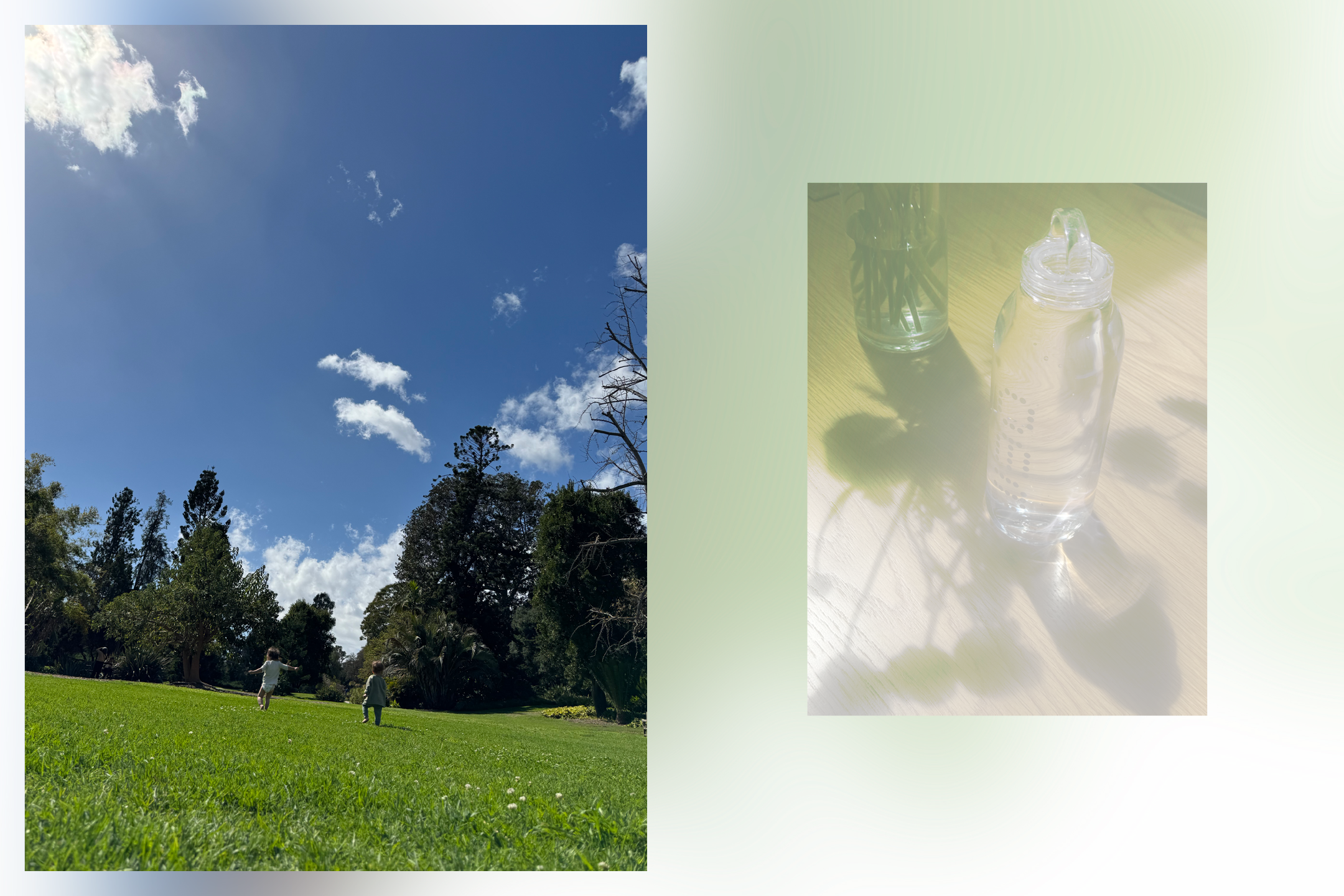
MF: As a Canadian-Japanese couple, how do you feel the blending of these two culturally distinct and geographically distant backgrounds has influenced the brand you’ve created?
CM: When we first started thinking about OEM, the original idea was to call it “Ouma,” which means grandma in Afrikaans. I’m South African, so that connection felt personal. We were going to call it Ouma because, for so many of us, that’s where care really starts. Your grandma is the one who looks after you when your parents are working, makes you meals, patches up your knee when you scrape it. We wanted the brand to give people that feeling—that sense of being cared for in the most genuine way.
But ultimately, we landed on OEM, which came from a slightly different place but still carries the same idea of care and connection. Growing up in Scotland, I went to this tiny school with only eight kids, all different ages. Because it was so small, we all played together. The older kids looked after the younger ones, made sure everyone felt included. That taught me early on about community—how important it is to take care of each other.
SK: And then, in Japan, where I spent part of my life, that team mentality is ingrained in everything. In school, we did so much in groups. We’d clean the classrooms and hallways ourselves, and we’d have lunch groups where we’d serve meals to our classmates and clean up afterward. It was all about contributing to something bigger than yourself and making sure no one was left behind.
Those experiences shaped me, and they shaped what we wanted OEM to stand for. It’s about care, not just as an idea, but as something you feel and live. Whether it’s your family, your community, or even strangers, supporting and looking out for each other is core to who we are.
